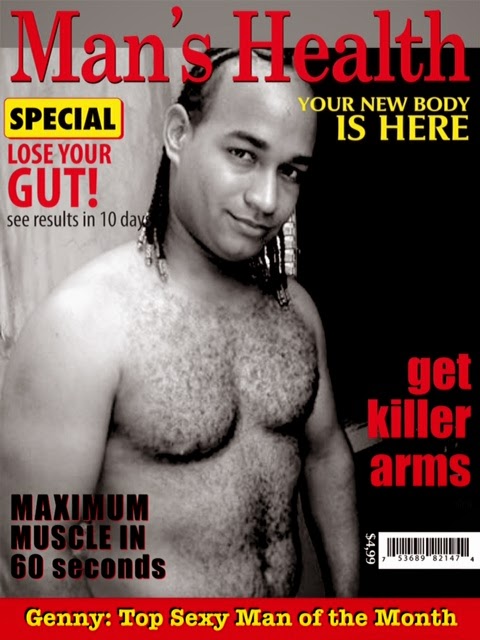Latest on church shooting: Lawmaker backs Miss. flag change

|
| South
Carolina Gov. Nikki Haley, center, calls for legislators to remove the
Confederate flag from the Statehouse grounds during a news conference in
the South Carolina State House in Columbia, S.C., Monday, June 22,
2015. Those surrounding her as she spoke included state legislators of
both parties. |
A top Mississippi lawmaker says the Confederate battle emblem is offensive and needs to be removed from the state flag.
Republican
House Speaker Philip Gunn said Monday that remembering our past is
important, "but that does not mean we must let it define us."
"As
a Christian, I believe our state's flag has become a point of offense
that needs to be removed. We need to begin having conversations about
changing Mississippi's flag," Gunn, a leader in his local Baptist
church, said in a statement.
Mississippi
voters decided by a 2-to-1 margin in 2001 to keep the state flag used
since 1894. One of its corners has a Confederate battle emblem.
---
7:50 p.m.
A
bust Nathan Bedford Forrest, a Confederate general and an early leader
in the Ku Klux Klan, still sits in an alcove outside the Senate chambers
at the Tennessee statehouse.
Both Democratic
and Republican lawmakers called for the bust to be removed Monday, days
after nine people were gunned down in a historic black church in South
Carolina. The shooting prompted calls from the governor and other
leaders for the flag to be removed from the Statehouse there.
U.S.
Rep. Jim Cooper, a Democrat from Tennessee, says the government should
not promote "symbols of hate" and called for both to be removed.
Even
though Forrest, a Tennessee native, was a Klan leader, the bust is
inscribed with only "Confederate States Army." It has been at the
Capitol for decades.
---
7 p.m.
The
chairman of the Republican National Committee joined Gov. Nikki Haley
in calling for the Confederate flag to be removed from the grounds of
South Carolina's Statehouse.
RNC Chairman Reince Priebus was among roughly 30 people of both parties standing behind Haley on Monday.
In
the wake of the massacre in Charleston, Republican presidential
hopefuls have been about the flag. South Carolina holds the South's
first presidential primary. Asked whether Haley's decision makes it
easier for GOP candidates, Priebus said, "It's not about Republican
candidates because on the stage there was a group of bipartisan people."
On
whether candidates talked to Haley, he said: "I don't know who was
talking to who, but I can assure you there has been plenty of
conversation going on for many days."
---
6:40 p.m.
South
Carolina Gov. Nikki Haley spent several hours on the phone with the
head of the state's law enforcement agency in the hours after
Wednesday's shooting that killed nine in a Charleston church.
Haley's
office released her schedule for last week, which included six calls to
State Law Enforcement Division Chief Mark Keel from 10:25 p.m.
Wednesday to 2:45 a.m. Thursday. She then traveled to Charleston to meet
with law enforcement and was at the news conference when they announced
the arrest of the suspect late that morning.
After
the first call from Keel, the Republican governor called the minority
leader, and the majority leader in the Senate. Democratic state Sen.
Clementa Pinckney was pastor of Emanuel African Methodist Episcopal
church and one of nine people killed during Bible study in the church
basement around 9 p.m. Wednesday.
Haley also spoke to President Barack Obama on Thursday and with Pinckney's widow on Friday, according to her schedule.
---
6:20 p.m.
Mississippi
officials are divided over whether to erase the Confederate battle
emblem from the state flag, even as South Carolina leaders are pushing
to remove a free-standing battle flag that flies outside the state
Capitol there.
Mississippi voters decided by a
2-to-1 margin in 2001 to keep the state flag that has been used since
1894. It features the Confederate battle emblem in the upper left
corner: a blue X emblazoned with 13 white stars, set against a red
field.
Republican Gov. Phil Bryant said Monday
that he doesn't believe legislators "will act to supersede the will of
the people on this issue."
Democratic Sen.
Kenny Wayne Jones, chairman of the Legislative Black Caucus, says the
Confederate emblem is a "symbol of hatred" that's often associated with
racial violence.
---
6 p.m.
South
Carolina House Minority Leader Todd Rutherford says he's confident
after talking to members of both parties that the Confederate flag will
be taken down from the Statehouse grounds within the next two months.
The
Democrat made his comments Monday as members of his party and the GOP
called on the flag to be removed, just days after police said a gunman
opened fire inside a black church and killed nine people.
"A
lot of people understand this is a moment we have to respond to," said
Rep. Rick Quinn, a Republican and former House majority leader who said
he will vote to take it down.
The biggest questions remaining may be how and when legislators take it up.
---
5 p.m.
Republican
Gov. Nikki Haley has said that it's time to remove the Confederate flag
from the Statehouse grounds - and that if South Carolina legislators
don't deal with the issue themselves as part of their special session
focused on budget in the coming weeks, she's prepared to call them back
for another special session.
Haley said Monday at a news conference that she's indicated her plan to the GOP-led House and Senate.
According
to the terms of a 15-year-old deal that brought the flag from atop the
Statehouse to a position outside to a monument for Confederate soldiers,
moving the banner will require a two-thirds supermajority in both
houses.
Haley reversed her position on the
flag after a young white man who embraced it as a symbol of white
supremacy was charged with murder in the deaths of nine black church
members in Charleston.
Those surrounding her as she spoke included state legislators of both parties.
---
4:55 p.m.
Moments
after the South Carolina governor's statement, fellow Republicans
echoed her call for the Confederate flag to come down, from the head of
the Republican Party to the top GOP lawmaker in the U.S. Senate.
Senate
Majority Leader Mitch McConnell, R-Ky., said in a statement: "The
Confederate Battle Flag means different things to different people, but
the fact that it continues to be a painful reminder of racial oppression
to many suggests to me at least that it's time to move beyond it, and
that the time for a state to fly it has long since passed. There should
be no confusion in anyone's mind that as a people we're united in our
determination to put that part of our history behind us."
Republican
National Committee Chairman Reince Priebus said "this flag has become
too divisive and too hurtful for too many of our fellow Americans."
The
remarks on the flag come after a young white man who embraced it as a
symbol of white supremacy
was charged with murder in the deaths of nine
black church members in Charleston.
---
4:35 p.m.
The
White House says President Barack Obama will travel to Charleston,
South Carolina, on Friday to memorialize the victims of a shooting at a
historic black church.
Obama will deliver the
eulogy at the funeral services of Rev. Clementa Pinckney, the pastor of
the Emanuel AME church where the shooting that killed nine people
occurred.
Obama and first lady Michelle got to
know the slain pastor, who also was state senator, during the 2008
presidential campaign. The first lady and Vice President Joe Biden will
also attend the funeral.
Pinckney was an early Obama supporter.
Last week, Obama said the shootings show the need for a national reckoning on gun violence.
---
4:30 p.m.
Gov.
Nikki Haley has said the Confederate flag should be removed from the
Statehouse grounds, but she also says the symbol will always remain a
part of South Carolina.
Haley said Monday at a
news conference that whether the flag is at the Statehouse or in a
museum, it will always be part of the soil of South Carolina.
She says some people see the flag as a memorial and a way to honor ancestors. She says that's not hate or racism.
The
divisive symbol has flown in front of the state Capitol for 15 years
after being moved from atop the Statehouse dome. Haley says its removal
may sadden some in the state, but the time has come to take it down.
Haley
reversed her position on the flag after a young white man who embraced
it as a symbol of white supremacy was charged with murder in the deaths
of nine black church members.
She says that man has a sick, twisted view of the flag.
---
4:25 p.m.
South
Carolina Gov. Nikki Haley says the Confederate flag should be removed
from the Statehouse grounds, reversing her position on the divisive
symbol.
The Republican's about-face Monday
comes after a young white man who embraced the flag as a symbol of white
supremacy was charged with murder in the deaths of nine black church
members. The flag has flown in front of the state Capitol for 15 years
after being moved from atop the Statehouse dome.
Haley
was surrounded by Republicans and Democrats alike and received a loud
applause and cheering when she made her announcement.
Haley said: "One hundred and fifty years after the end of the Civil War, the time has come."
The
suspect in the church shootings, 21-year-old Dylann Roof, was
photographed earlier holding Confederate flags. Police say he made
racial insults at the church members during the shooting.
Supporters
of the flag say it is a memorial to fallen Confederate soldiers, but
opponents say it's a symbol of hate put atop the Statehouse dome to
protest the civil rights movement.
---
3:10 p.m.
A
person familiar with Republican Sen. Tim Scott's decision says he is
calling for the removal of the Confederate flag from the South Carolina
Statehouse grounds.
Scott, of South Carolina,
is the first African-American senator from the South since
Reconstruction. He joins a growing number of calls for the flag to come
down after a gunman opened fire in a historic black church, killing nine
people.
The source spoke on the condition of anonymity because he was not authorized to speak publicly on the matter.
Police say a young white man is responsible for the racially motivated attack at the church in Charleston.
---
Associated Press writer Meg Kinnard in Charleston contributed to this report.
2:45 p.m.
A
person familiar with his decision says Sen. Lindsey Graham will call
for the Confederate flag flying on the South Carolina Statehouse grounds
to come down.
The person says Graham will do
so later Monday afternoon. The person spoke to The Associated Press on
condition of anonymity so as not to preclude Graham's announcement.
Some
Charleston, South Carolina-area political and religious leaders have
asked state lawmakers to remove the flag from South Carolina's capital
grounds in the wake of last week's slaying of nine black people during a
Bible study.
A white man, Dylann Roof, has been charged in the deaths.
Graham
said this past weekend he was open to revisiting the decision to use
the flag, but said on CNN, it "is a part of who we are."
---
Associated Press writer Steve Peoples in Washington contributed to this report.
2 p.m.
The
Sons of Confederate Veterans says it plans to vigorously fight any
effort to remove the Confederate flag from the grounds of South
Carolina's Statehouse.
The group says it was
horrified at last week's shooting of nine black churchgoers in
Charleston, allegedly by a white man who was photographed several times
holding the Confederate flag and with other symbols of white supremacy.
In a statement, the group says there is "absolutely no link" between the massacre and the banner.
Leland
Summers, South Carolina commander of the group, says the group is about
heritage and history, not hate. He offered condolences to the Emanuel
African Methodist Episcopal Church, and says now is not the time to make
political points.
Summers said the Sons of Confederate Veterans have 30,000 members nationwide that will fight any attempt to move the flag.
---
1:40 p.m.
The
White House says President Barack Obama believes the Confederate flag
should no longer be flown in
Charleston, South Carolina, or elsewhere,
but doesn't have authority over that decision.
Spokesman
Josh Earnest says Obama has maintained for years that the Confederate
flag "should be taken down and placed in a museum where it belongs," but
recognizes it's an issue for individual states.
Some
Charleston-area political and religious leaders are calling on state
lawmakers to remove the flag from South Carolina's capital grounds after
a white man killed nine black people during a Bible study last week.
Earnest says it's very clear what Obama thinks would be the appropriate action.
---
12:30 p.m.
A
group of Charleston-area political and religious leaders are calling on
state lawmakers to vote this week
to remove the Confederate flag from
South Carolina's capital grounds.
Officials
including Charleston Mayor Joseph P. Riley Jr. and Democratic state Sen.
Marlon Kimpson in North Charleston on Monday called on legislators to
stay in session and vote as early as Tuesday to take down the flag from
its place in front of the statehouse in Columbia.
The
Rev. Nelson B Rivers III of the National Action Network said the flag
should be removed before the body of state Sen. Clementa Pinckney lies
in state at the Statehouse on Wednesday. Pinckney and eight other church
members were shot to death last week as they attended Bible study at
Emanuel African
Methodist Episcopal Church in downtown Charleston.
Kimpson
says he's informed state Senate leaders that there is a "growing
chorus" of members interested in
taking up a debate while lawmakers are
in session to discuss the budget.
---
12:05 p.m.
South
Carolina House Speaker Jay Lucas says moving the state forward from
last week's shooting deaths at a historic black church in Charleston
requires swiftly resolving the Confederate flag issue.
Lucas did not specify what he believes that resolution should be or how legislators could take it up.
The
Legislature's regular session ended June 4. Legislators are expected to
return later this week in a short, limited session to pass a budget
compromise. Both chambers would have to give two-thirds approval just to
take up anything new.
"The intense and
difficult debate that took place in 2000 over the Confederate soldier
flag was ultimately resolved by compromise. Wednesday's unspeakable
tragedy has reignited a discussion on this sensitive issue," Lucas said
in a statement.
South Carolina was the last
state to fly the Confederate battle flag from its Statehouse dome until
the 2000 compromise put a square version of the flag - the South
Carolina Infantry Battle Flag - on a 30-foot flagpole at the Confederate
Soldier Monument directly in front of the Statehouse, along one of
Columbia's busiest streets.
Dylann Roof, who is white, has been charged in the deaths of the nine people in Charleston.
Gov. Nikki Haley has scheduled a news conference for later Monday. Her office has given no indication of what she will say.
---
10:45 a.m.
Charleston
Mayor Joseph P. Riley says he has been overwhelmed but not surprised at
the outpouring of donations for a fund he helped set up for the
families of the victims of the Charleston shooting.
Riley
said donations poured in to the Mother Emanuel Hope Fund and the
Reverend Pinckney fund. City officials are still trying to figure out
how much money the funds had Monday morning.
"I've got $110,000 in checks in my pocket. It's wonderful," Riley said.
The
fund was set up after authorities say a white gunman opened fire on a
black church in a racially motivated attack, killing nine people,
including the Rev. Clementa Pinckney.
Riley
says even in the darkest hours, as details started to come out about the
shooting, he knew Charleston would show love instead of hate.
People can donate on the city's website:
http://www.charleston-sc.gov






















